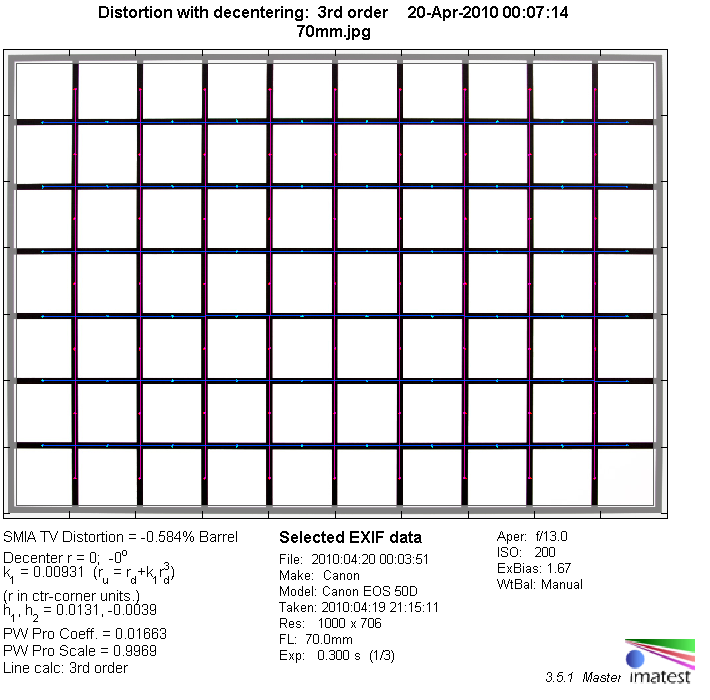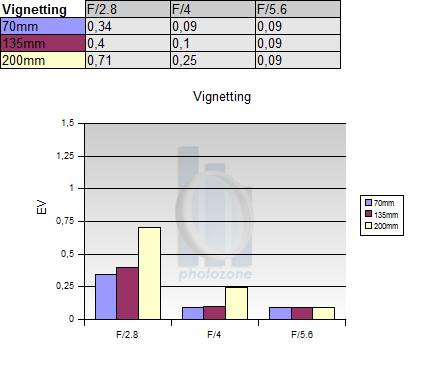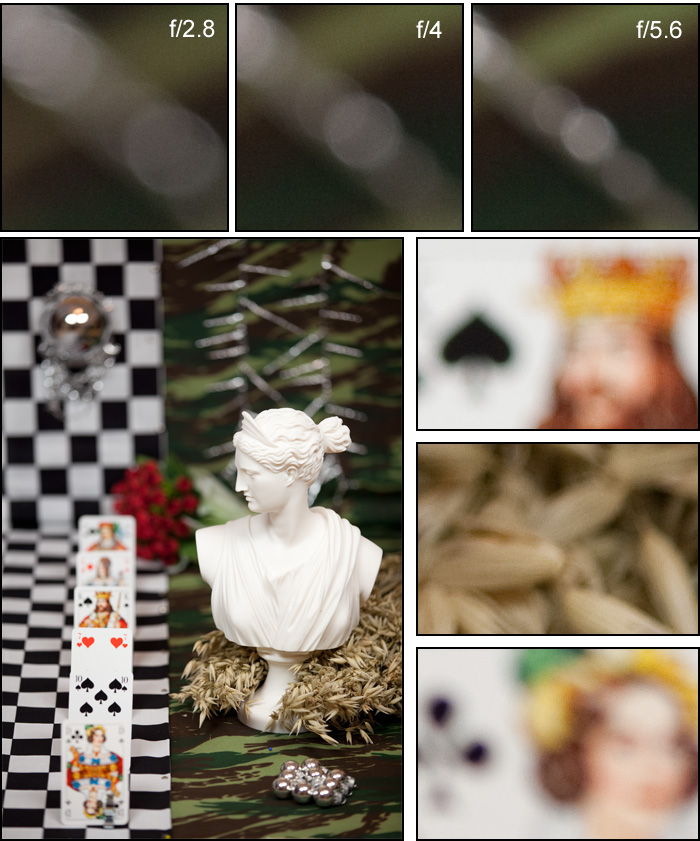|
Page 2 of 2

Distortion
The Canon EF 70-200mm f/2.8 USM L IS II produces a slight amount of barrel distortion at 70mm, basically no
distortion at 135mm and marginal pincushion distortion at 200mm. This is, of course, a little better compared
to the results in our full format review.
|
Move the mouse cursor over the focal length text marks below to observe the respective distortion
|
| 70mm |
135mm |
200mm |
|

|
Vignetting
The EF 70-200mm f/2.8 II is a full format lens which enjoys a sweet spot advantage when used on APS-C DSLRs.
It showed fairly significant vignetting during our full format tests but the problem isn't really significant
within the APS-C scope. In very critical scenes you may spot some vignetting at 200mm at f/2.8 but it's really
a non-issue otherwise.

MTF (resolution)
It's probably not necessary to comment on the charts below - the Canon lens is simply outstanding especially regarding
the uniformity of the results throughout the range and across the image frame.
Field curvature is basically non-existent.
Please note that the MTF results are not directly comparable across the different systems!
Below is a simplified summary of the formal findings. The chart shows line widths per picture height (LW/PH) which can be taken as a measure for sharpness.
If you want to know more about the MTF50 figures you may check out the corresponding Imatest Explanations
Chromatic Aberrations
The Canon lens has an excellent behavior regarding lateral chromatic aberrations (color shadows
at harsh light transitions). At less than 0.7px at the image borders it is usually nothing to worry about in
field conditions.

Bokeh
We haven't really looked into the "cropped" (APS-C) variant of the bokeh during this test. However, the
full format test gives a good guidance here anyway.
The EF 70-200mm f/2.8 USM L IS II is a "fast" lens so the quality of the bokeh is a major aspect here.
Out-of-focus highlights have a perfect circular shape with basically no outlining from f/2.8 to f/5.6.
In our full format review we mentioned that the lens suffers a little from a "cat's eye" highlight effect at
the image borders. However, this problem is basically a non-issue on APS-C DSLRs due to the sweet spot effect
here. The smoothness of the blur is good for a zoom lens although the best primes remain a tad better here.

These sample portions were taken at ~140mm.
Bokeh Fringing / Longitudinal Chromatic Aberrations (LoCA)
Bokeh fringing at large aperture is a problem which is often not well corrected but the Canon lens
is capable of delivering a good albeit not perfect characteristic here. If you look hard (on a good
screen) you may spot some green and purple traces at large apertures. They're not dominant but
visible.
Note: the full format test results have been reused here. The samples were taken from the image
center so the findings remain valid here of course.
|
Move the mouse cursor over the f-stop marks below to observe the respective LoCAs
|
| f/2.8 |
f/4 |
f/5.6 |
|

|
These sample portions were taken at ~140mm.
Verdict
Some of you may have already followed our full format review of the Canon EF 70-200mm f/2.8 USM L IS II.
The lens performed highly impressive here already but it's even better on APS-C DSLRs due to the
sweet spot effect ("center" crop) here. The resolution is nothing short of phenomenal for a zoom lens and
that's throughout the focal length range as well as across the image field. Lateral CAs are not
an issue to worry about either. There's a bit of vignetting at 200mm at f/2.8 but otherwise
there's really nothing to complain about here. The level of distortions is also very slight.
The quality of the bokeh (out-of-focus blur) is good but there's a bit of bokeh color fringing
which may be visible in very critical scenes.
The build quality is outstanding and leaves nothing to be desired. The AF is both
speedy and accurate. The IS ("image stabilizer") is capable of giving you a gain
equivalent to about 4 f-stops - also in field conditions.
The Canon lens has only a single significant drawback - its pricing.
The costs increased by ~25% compared to the 70-200mm f/2.8 USM L IS mk I. However, it's
also quite obvious that the price can be justified relative to the performance
level. Therefore ... highly recommended!
|